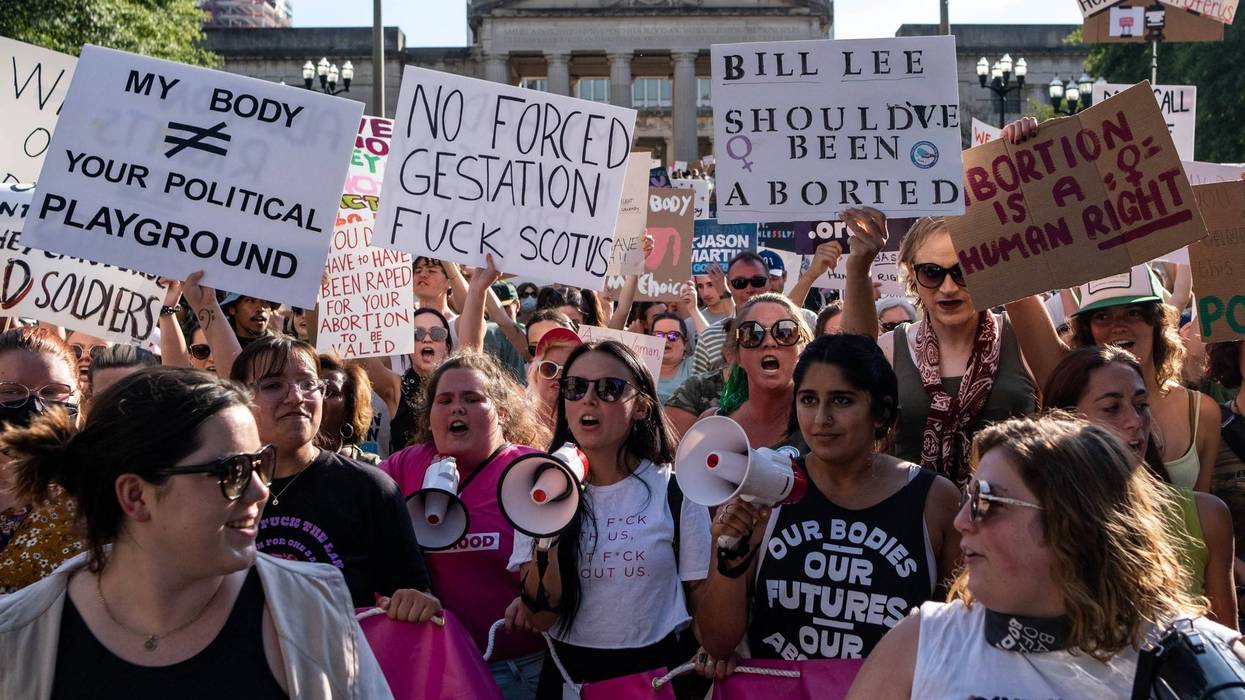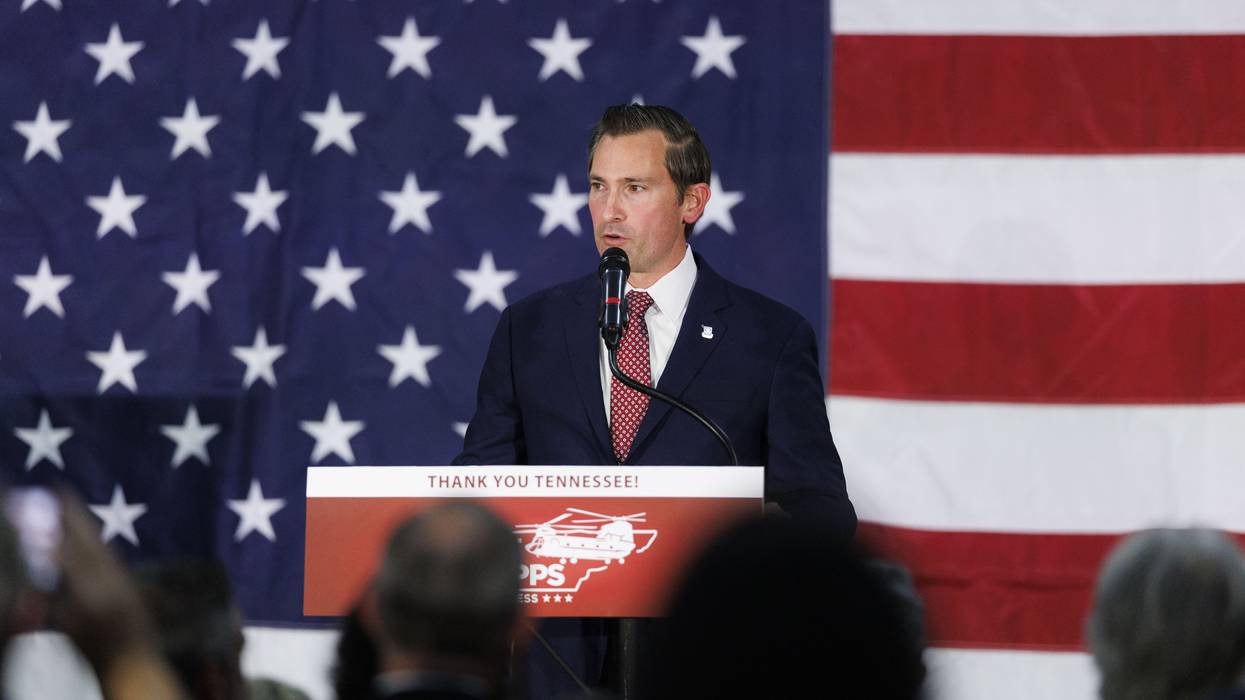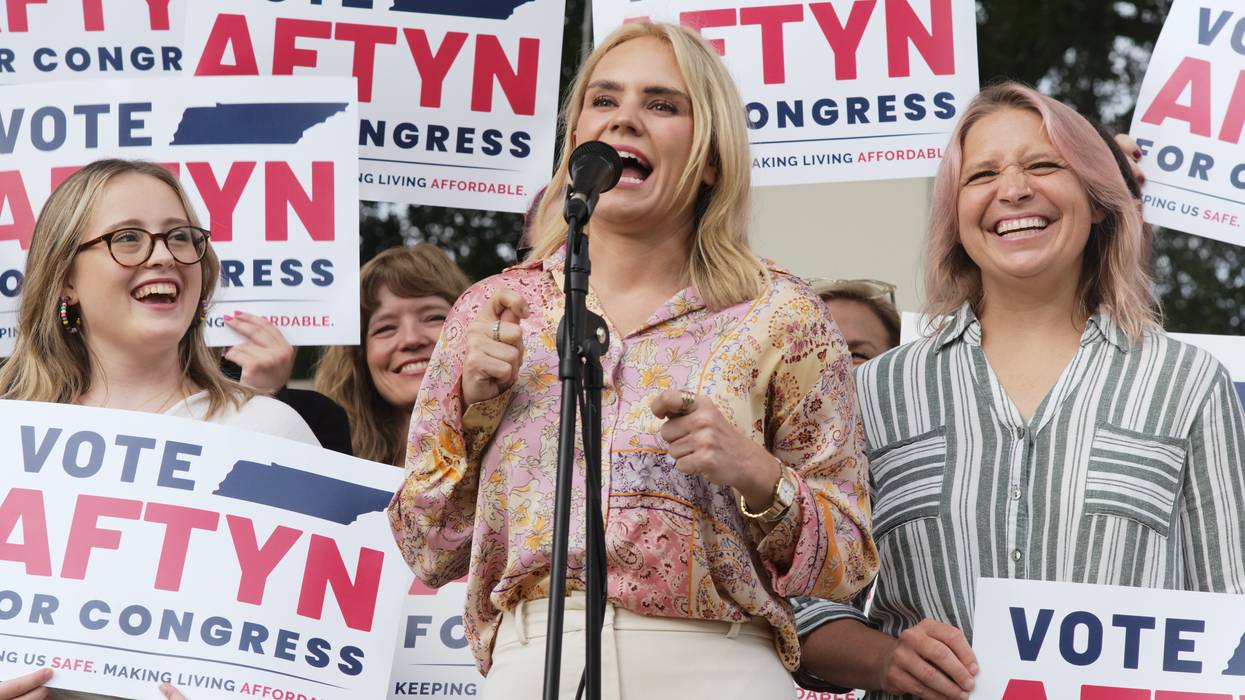Republican Lawmakers' Bid to Execute Tennessee Abortion Patients Slammed as 'Christofascism'
"This is about the future of the anti-abortion movement in the Republican Party and the way that they are embracing extremism at a rate that is so fucking alarming," said one critic.
“If you kill a baby from embryo on up with a pill or a scalpel, we oughta execute you."
That's not social media rage bait by some random zealot, it's the premise of legislation recently introduced by Republican state lawmakers in Tennessee to make abortion a capital offense, as voiced by one of the measure's sponsors. And it's setting off alarm bells in recent days across a nation in which attacks on remaining reproductive rights have been accelerating in the years since the right-wing US Supreme Court overturned its landmark Roe v. Wade ruling nearly four years ago.
An amendment to HB 570/SB 738 was filed by primary sponsors Rep. Jody Barrett (R-69) and Sen. Mark Pody (R-17) and co-sponsored by five of their GOP colleagues, all men, including Rep. Monty Fritts (R-32), who is also running for governor—and who is the source of the quote in this article's lede. Fritts spoke those words at a meeting in Jonesborough, where TN Repro News publisher Rachel Wells last year interviewed a pregnant woman who was allegedly denied prenatal care under Tennessee's Medical Ethics Defense Act because she is unmarried to her partner of 15 years.
If passed, Barrett and Pody's amendment—which was still adding co-sponsors as of Monday—would classify abortion as "homicide of an unborn child," punishable by life imprisonment with or without parole—or even death by lethal injection. The measure contains very narrow exceptions, including for spontaneous miscarriage or when abortion is needed to save a mother's life. The amendment is currently under committee review has not yet been scheduled for a vote.
Tennessee already has some of the strictest abortion laws in the United States, with a near-total ban on the procedure in effect since Republican Gov. Bill Lee signed it in August 2022. Abortion is banned from fertilization, with limited exceptions.
While religious groups including the Southern Baptist Convention and Foundation to Abolish Abortion hailed the proposal as a life-saving measure that serves the will of the Abrahamic deity figure "God," reproductive rights defenders expressed alarm and outrage.
"We are talking about a gubernatorial candidate openly calling for women who end their pregnancies to be charged with a capital crime and spend their life in prison or for the to get the death penalty. That is where we're at right now," Abortion, Every Day publisher Jessica Valenti said in a video posted on social media.
"This is not just about this one guy," she continued. "This is about the future of the anti-abortion movement in the Republican Party and the way that they are embracing extremism at a rate that is so fucking alarming."
Meet Rep. Monty Fritts— a Tennessee lawmaker running for governor. If you’re one of the millions of American women who’s had an abortion, he thinks that you should be given the death penalty
[image or embed]
— Jessica Valenti (@jessicavalenti.bsky.social) February 18, 2026 at 7:57 PM
"Saying that women should be punished for having abortions was once... an unthinkable thing to say within the anti-abortion movement," Valenti added. "Now they're openly embracing it. Over a dozen states over the last year have introduced or advanced equal protection legislation... that would punish abortion patients as murders, which in some states can mean the death penalty, it could mean life in prison."
"This is not some fringe element," she stressed. "This is becoming the mainstream of the movement. Right now in Texas... the Republican Party platform calls for equal protection. It calls for the execution of women or life in prison for women who have abortions. This is not fringe."
In South Carolina, where a bill to execute people who have abortions garnered more than 20 GOP votes on its way to defeat but performing the procedure is a felony, the Sumter County Sheriff's Office last week launched an investigation into a fetus that was found at a water treatment plant. Investigators will test tissue samples from the fetus "to determine the race and locate the mother."
Numerous deaths have been attributed to abortion bans in states including Texas and Georgia.
Back in Tennessee, Fritts—who is polling at around 5-7% in the GOP gubernatorial primary, depending on the survey—has been busy defending his proposal to kill people who have abortions.
“Murder is murder. I know that’s hard for people to hear, and I don’t mean to be hard with it, I promise,” he told the Tennessee Holler, comparing abortion pills to cyanide capsules.
Fritts' campaign slogan is "liberty & less government."
Responding to Fritts' co-sponsorship of the death penalty amendment, Jon Tate's Daily Practice publisher Jon Tate wrote, "Disgusting."
"While I was busy and not paying attention, my state was apparently becoming ground zero for white-supremacist Christofascism," he added. "It breaks my brain and my heart."


